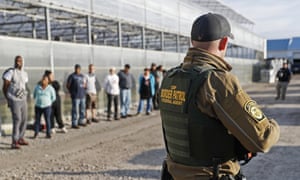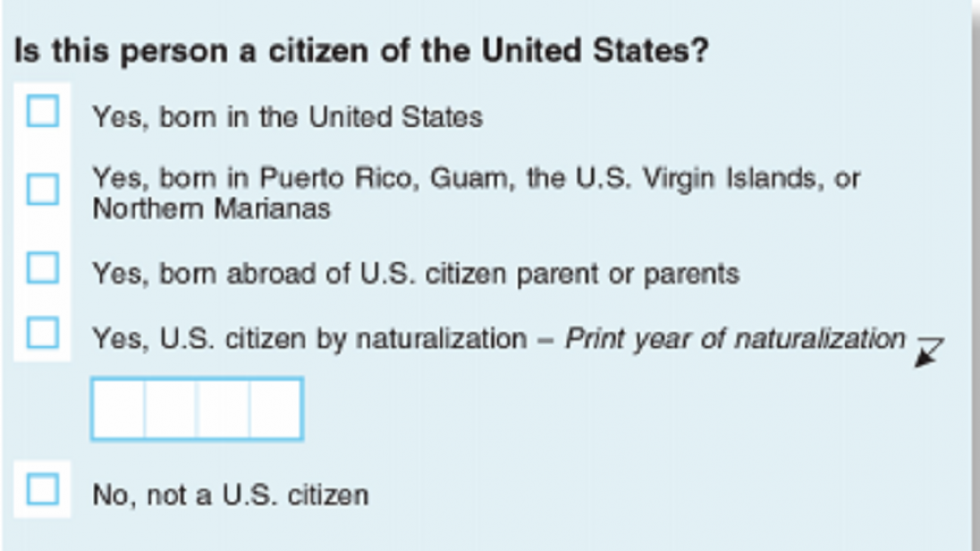LISTSOur biweekly lists lay out notable issues in the news and tell you what you can do about them.
|
SUBSCRIBE TO EMAIL UPDATES:
|
|
7/26/2019 0 Comments Heat of the Summer: July 2019Hey Teen Resisters!! Long time no see! We've taken a bit of a summer break (and hope all of you have as well), so a LOT (more than usual) has happened since the last time we published a list. We obviously cannot cover everything, but we've tried to highlight we think are some of the most important happenings from the past month/ things to be aware of going forward. Feel free to skip around if the whole list is too much to handle, and take a deep breath before diving in. xx, TR what went down
Warren, a Democratic senator from Massachusetts, and Sanders, an Independent senator from Vermont, are typically portrayed in the media as the fiery progressives. Harris stands out because of her background as a criminal prosecutor, while Biden seems thus far to be running on a platform entirely based on a return to normalcy. And although those four are currently the top candidates poll-wise, there are a plethora of others who have their own passionate followings. It’s still very early in the race, and we don’t want to pass judgement on any candidates yet. Our advice? Take time to learn more about each individual candidate before you decide who you’re going to pull for. Try to figure out what their actual policies are, and don’t trust everything that the media pushes (to take just one example, contrary to popular narratives, Sanders and Warren are actually quite different). Later on in the race, we’ll most likely do a feature that’s more concentrated on individual candidates/on tensions between them, so look out for that. For now, read and learn on your own!! A great place to do that is the second round of the upcoming Democratic primary debates, which will take place on July 30th and 31st. It’s okay to be excited about this election. Finding a candidate you love and pouring your heart and soul into getting them elected is a pretty amazing feeling, and the stakes are higher than ever this year—no matter what, 2020 is an opportunity for decisive and transformative change. One last note: don’t forget—all of the House and about a third of the Senate is up for reelection in 2020 too! If you can vote in 2020, be sure to find out who’s running in your district. Local elections often have the biggest impact on our lives; don’t let the national coverage of the presidential distract you from what’s happening on your home turf. What you can do:
The messages also hinted at potential corruption; the Puerto Rico Bar Association reported that seven possible crimes had been revealed in the chat, including a threat against the mayor of San Juan and instances of diverting funds, improper disclosure of private information, and intention to fire employees based on political beliefs. Rosselló’s administration has been colored with corruption—he has been known to buy votes with handouts such as tax breaks and vacation days, and two weeks ago, six former members of his administration were charged with federal corruption charges. Beyond these instances and what came to light in the report, Puerto Ricans used this opportunity to protest years of financial mistreatment and the government’s insufficient response to Hurricane Maria, which took place nine months after Rosselló first took office. At the time, there was no time for protests, because people were struggling to survive. But now, with many still without electricity almost a year after the disaster happened, the people of Puerto Rico were ready to channel their anger and energy into resistance. This isn’t much of what can you do-situation, since the protests succeeded, except for this: use what happened in Puerto Rico as inspiration, a shining example of what popular resistance is capable of doing.
The site is ideal for astronomy due to its high altitude, low light pollution, and dry climate, and those in favor of the telescope claim that its creation will create new jobs and positively impact the local economy. But the area is also a highly sacred space in native Hawaiian tradition, and legal challenges and peaceful protests against the telescope have been ongoing for the past four years. The fight is still very much ongoing: protests continue, and figures from Rep. Alexandria Ocasio-Cortez and Senator Elizabeth Warren to Hawaii’s own delegates, Rep. Ed Case and Senator Mazie Hirono, have defended and expressed solidarity for the native movement. What can you do?
It was some horrible combination of xenophobia, white nationalism, ignorance, and racism, not unexpected coming from him but difficult to see nonetheless. The kickback was swift and fierce: all four congresswomen attacked, Nancy Pelosi, and countless others across the country denounced the message perpetuated in the tweets. A recent Fox News poll found that Americans overwhelmingly believe the tweets were racist. For decades, a common attack against people who don’t look traditionally “American” (i.e. white) has been to “go back” to wherever they came from. The insult has been spit at immigrants, POC, and other minority groups, and it’s become valuable weapon in xenophobic propaganda. “Go back to your country” is essentially another way of saying “you’re not welcome here,” and while words alone don’t seem like a violent issue, they do enable violent and dangerous behavior—hate crimes. During a recent Trump reelection rally, supporters chanted “send her back” as a reference towards Ilhan Omar and Trump’s contempt towards her. Vice President Mike Pence released a statement on CBS about a week later, briefly stating that “the president wasn’t pleased about [the rally chant]. Neither was I.” However, both have not condemned the actions of their audience, instead stating that the group were just “incredible patriots.” According to a Washington Post analysis, reported hate crimes rose by 226 percent in counties where Trump held a campaign rally. So when xenophobic behavior exhibited by the president allows others to follow his example, what can we do?
More than 2000 deportation orders were sent out prior to the raids. However, only 35 arrests have been made out of the 2000+ targeted since they have begun. Speculation has arisen about the ICE crackdown being solely a political stunt by Trump to cause fear and further divide the nation, possibly even one that could strengthen his base in the 2020 election and scare the opposition. Regardless, though, with everything that’s going on, it’s important to be prepared and acknowledge the situation. Learn more about your rights as an immigrant here in terms of encounters with ICE or law enforcement in your everyday life. What can you do?
The federal government is required to provide an honest reason for including new questions or making alterations to the survey, and Chief Justice John Roberts wrote in the majority opinion that the reason the Trump administration gave for including the citizenship question “appears to have been contrived.” In giving this ruling, the Supreme Court was essentially acknowledging what is recognized by many as the real reason the Trump administration wanted to include the question on the census: to manipulate both the voting demographics of the country as a whole and the mindsets of immigrants and people of color living in this country. There’s evidence that the inclusion of the question on the census would have discouraged noncitizens from filling out the census. Since the census is used to draw districts for House representation and to distribute billions of dollars in federal funding, the question could both give Republicans an electoral advantage and take funding away from communities that need it. Regardless of whether or not the question is included, damage has already been done. Simply the attempt to put the question on the survey has sowed distrust of the government and doubt of the confidentiality of survey results in the minds of noncitizens, which will inevitably alter the census results in Republicans’ favor. This is another part of the narrative of trying to push minorities and immigrants out of this country from within and make them feel like their voices shouldn’t be heard, and we need to continue to denounce it.
Opponents of the bill pointed to Oregon’s absenteeism rates, which are among the highest in the country: one in six Oregon students missed 10 percent or more of school days in the 2015-2016 school year. Critics argued that the bill would just give students more reasons to skip school. The bill’s supporters countered that the purpose of the bill wasn’t to encourage absenteeism, but rather to help students be more honest about why they did not want to go to school. Mental health is an especially prevalent issue in Oregon, whose suicide rate is 40 percent higher than the national average. A survey of eighth-graders in the state found that 17 percent had seriously considered suicide in the past year. Proponents of the bill argued that the new law could encourage such students to be more open and seek help for mental illness. What You Can Do:
And, in lieu of a puppy video this week, we've included something that we hope will give all of you a well-deserved laugh.
0 Comments
Leave a Reply. |
UPdatesThese lists include featured organizations, scripts, numbers, news updates and inspirational activists. Archives
January 2022
Categories |
About |
Content |
|








 RSS Feed
RSS Feed
